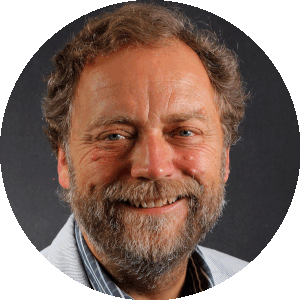 A letter from Ian Ritchie, guest speaker at OC’s 2019 National Conference to the OC Membership on the Re-sounding the Orchestra report:
A letter from Ian Ritchie, guest speaker at OC’s 2019 National Conference to the OC Membership on the Re-sounding the Orchestra report:
Having first participated in conferences organised by your ACO predecessors back in the early 1990s, when I chaired the Association of British Orchestras and ran the Scottish Chamber Orchestra, I was delighted to be invited again to take part in your recent deliberations in Ottawa. In acknowledging not only those heady days of innovation and change in the orchestral landscapes of our respective countries but also these present times of strategic ingenuity and creative effort so evidently at work in many Canadian orchestras, it may seem rather presumptuous of me to offer any suggestions to add to your already well-considered responses to the recent Re-sounding the Orchestra report. But I shall take that risk!
 I should like to advocate the possibility of developing socially-inclusive, community-based ‘open’ youth ‘orchestras’, in partnership with established professional orchestras throughout Canada, as a strategic and practical response to the report’s understandably challenging and uncompromising demands, drawing on the Setúbal Youth Ensemble model which I have developed over the past five years through my Music Festival in Portugal. In brief, through an open auditioning process which makes no assumptions of any Eurocentric orchestral structure, the resulting Ensemble has recruited and maintained roughly a quarter of its membership from the aural tradition, reflecting the local population of immigrants from former African and South American colonies of Portugal, another quarter comprising young people with various disabilities and special needs, and approximately half coming via the mainstream of music education – all chosen for their talent. With the instrumentation dependent on the selected young musicians rather than the other way about, there is no standard repertory and therefore all the Ensemble’s music has be specially composed or arranged: this has given unique creative opportunities to a new generation of composers, embracing unusual instrumental combinations (including the use of accessible technology, where appropriate) and inventing special notations to enable the participation of those unable to read the conventional musical language. This Ensemble is Setúbal’s official ‘youth orchestra’.
I should like to advocate the possibility of developing socially-inclusive, community-based ‘open’ youth ‘orchestras’, in partnership with established professional orchestras throughout Canada, as a strategic and practical response to the report’s understandably challenging and uncompromising demands, drawing on the Setúbal Youth Ensemble model which I have developed over the past five years through my Music Festival in Portugal. In brief, through an open auditioning process which makes no assumptions of any Eurocentric orchestral structure, the resulting Ensemble has recruited and maintained roughly a quarter of its membership from the aural tradition, reflecting the local population of immigrants from former African and South American colonies of Portugal, another quarter comprising young people with various disabilities and special needs, and approximately half coming via the mainstream of music education – all chosen for their talent. With the instrumentation dependent on the selected young musicians rather than the other way about, there is no standard repertory and therefore all the Ensemble’s music has be specially composed or arranged: this has given unique creative opportunities to a new generation of composers, embracing unusual instrumental combinations (including the use of accessible technology, where appropriate) and inventing special notations to enable the participation of those unable to read the conventional musical language. This Ensemble is Setúbal’s official ‘youth orchestra’.
I believe that it will be important for orchestras to protect the continuation of a positive and manageable evolution rather than to stir up a sudden and potentially damaging revolution, in responding resonantly to the Re-sounding report. The Setúbal model can support this approach, inviting decisive action and encouraging any necessary ‘revolution’ to be driven by the new and emerging generations of collaborative musicians. Such ensembles – which will be young, innovative, adaptable, inclusive and diverse musical communities – are much more likely than established and understandably less flexible adult orchestras to persuade conservatoires and universities to listen and respond to demands for fundamental transformations in their educational and training pathways. These pathways are currently too narrow and poorly signposted for musicians from non-Eurocentric and Indigenous backgrounds to make useful progress; and they are completely blocked for most people with physical disabilities, learning difficulties and other special needs.
To summarise, the adoption of the Setúbal Youth Ensemble model, locally adjusted for each distinct ensemble and community, will not impose standard western classical hierarchies and practices of leadership, instrumentation, repertoire, notation and rehearsal procedures but shall admit various musical genres (reflecting the group’s varied membership), new works, arrangements, improvisation, mutual creativity and adjustable time-frames into the process. Such an approach is not necessarily expensive; it is accessible for young musicians of all backgrounds and can help to address the reported concerns of those seeking equity, especially amongst the Indigenous population; it gives composers and other creative artists a broader palette of opportunities to collaborate; it can advance music as an art-form in itself and more widely on a number of fronts, including its proven but untapped potential in human development, health and well-being. That would be a resounding success!
Ian Ritchie (London, England – July 2019)
